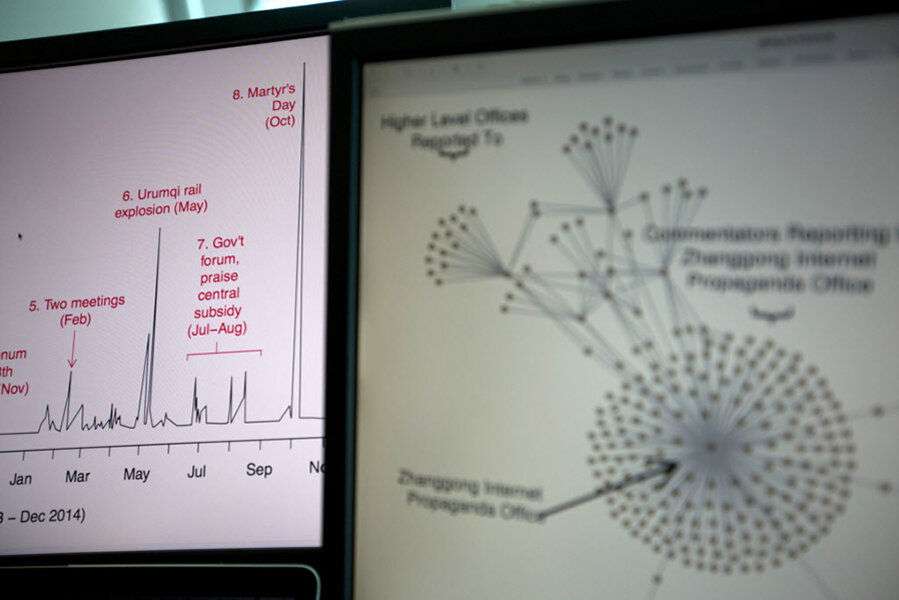In US 'information war,' is social media the new 'Uncle Sam' poster?
Loading...
A group of US lawmakers is upping the stakes in what some are calling an "information war" against overseas propaganda from Russia and China, a battle that is increasingly being waged online, via dueling social media posts.
The lawmakers are calling for the federal government to set up a committee of senior officials, spending $20 million over 10 years to counter what they say are misleading portrayals of world events that damage how citizens view the United States.
The effort particularly focuses on Russia, where "President [Vladimir] Putin's complete domination of media in Russia, strict messaging and obfuscated campaigns in neighboring countries all serve to change public perception and ultimately the facts on the ground," Rep. Ted Lieu (D) of California, who is leading the effort, told McClatchy.
The conflict isn't really new. But where a war of words once played out in the pages of Russia's Pravda, Uncle Sam recruiting posters, or on the radio, it now increasingly rages online.
After NATO revealed this week that it would expand its presence in countries that were part of the former Soviet Union, the Russian Ministry of Defense took to social media to dismiss the move.
"This statement by the NATO Secretary General is a kind of final aria of a Russophobian play for taxpayers of the NATO member states, who are to open their wallets wide for fighting against imaginary Russian military threat," the ministry said on Facebook.
Previously, the US government has explored similar efforts to combat Islamic extremism. In February, Justice Department officials met with executives from Google, Facebook, and Twitter to talk about creating campaigns to disrupt recruiting efforts by the Islamic State online.
The effort was seen as an attempt to move away from campaigns created directly by the government, toward more grassroots, "peer to peer," counter-narrative efforts, such as messages created by college students.
But some observers say that when it comes to Russia and its conflicts in Ukraine, such efforts are counterproductive.
"Fighting propaganda head-on with counter-propaganda is not just unrealistic, but also deeply flawed," Josh Machleder, now a senior media advisor at the US Agency for International Development, wrote in Foreign Policy last year.
"Rather than fighting Russia's media spin doctors with bombastic 'messaging' from the west or from [Kiev], we should concentrate instead on supporting excellent local journalism and furthering the distribution of objective news and information," he added.
The bipartisan group of lawmakers argues that a separate agency, which they are calling the Center for Information Analysis and Response, is necessary to respond to foreign propaganda.
"This stuff is all very important," Rep. Adam Kinzinger (R) of Illinois told McClatchy. "So it's not just an information thing, it's also about what we need to do as a country to win the war of ideas without shooting more. That's how we won the Cold War."
In Russia, some observers say that the specter of an "information war" with the US and other nations has also served to misinform the public on a range of issues, including the prevalence of HIV and AIDS.
The country recently released a report claiming that the West's real goal in discussing Russia's own HIV and AIDS challenges was "the implementation of the economic and political interests of US-led global structures, relying on an extensive network of international and quasi-NGOs," The Sydney Morning Herald reports.
That distracts from evidence that Russia's rate of HIV infection is on the rise, Anya Sarang, head of the Andrey Rylkov Foundation, a Russian NGO focusing on drug treatment, told the Herald.
"The Russian population is really psyched up now with this whole anti-Western ideology and discourse," she said. "People might take this seriously and think 'oh, HIV isn't a Russian problem – it's just a part of the information war.' "







